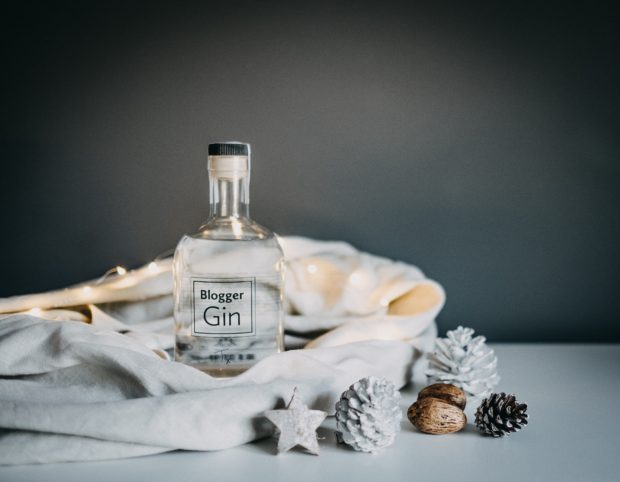
People without arthritis are always being told that alcohol is fine “in moderation”, but moderation isn’t always what you want, right? Not everybody can be “moderate” all the time, especially when your friends are having the time of their lives around you. Also, what if you are newly diagnosed and are adapting to new medicines? How do you have a good night out and stay safe and healthy at the same time?
Well, if you can, it’s important to listen to the experts – that includes people who’ve been through their teenage years and twenties, as well as your doctors.
• Alcohol can react with some arthritis medications so the first thing to do is talk to your doctor or nurse specialist and find out what’s recommended with your particular drug treatment. Be honest with your doctor (it will really help them to assess blood results correctly) and try to get them to be honest with you. It’s important you get the right advice for the drugs you’re taking. If you’re taking methotrexate, for example, the drug can interact with the alcohol and could damage your liver. Different specialists may recommend a differing numbers of units of alcohol depending on the medication prescribed. It is always advisable to seek guidance from your team about how many units OR NOT are acceptable in your circumstances.
• From January 2016 the Government guidelines have recommended that, for people not on medication, both men and women should not regularly drink more than fourteen units of alcohol a week. If you’ve had a heavy drinking session, the NHS recommends you should avoid alcohol for 48 hours. You’ll probably want to anyway!
• Know your units. There are two units of alcohol in one pint of lower strength lager (like Fosters or Carlsberg) and three units of alcohol in one pint of higher strength lager (like Stella or Kronenburg). There are three units in a large glass of wine. You can find out more about alcohol units here and download a drinks tracker here.
• Plan your nights out – make sure you know how you’re going to get home, and make sure your friends know about your condition so they don’t expect you to walk miles home alone at the end of the night if you find this difficult (you probably shouldn’t do this anyway!) You may find it difficult to talk to your friends about your arthritis and you may face peer pressure to drink. But if you look around, you’ll probably find you’re not the only one in your circle who isn’t drinking very much. Some people don’t like it. Some will be on medication. Some will be sporty and concerned with their fitness. Some may have religious reasons for not drinking. This is all fine, you don’t have to drink alcohol to fit in.
• If you suffer from fatigue, drinking too much probably isn’t going to help with this – you’ll get poor quality sleep and feel worse generally. There’s no reliable hangover cure. We’ve tried them, and they don’t work!
• If you think you might be drinking too much, you can use the NHS drinking assessment tool to find out.
• If you are drinking too much and you need to cut down, it really isn’t that hard to reduce your intake and still keep up with your hectic social life. In fact, if you cut down a bit, you might have more energy to keep going out! Simply work out a daily limit and stick to it.
• Plan activities that don’t involve drinking – perhaps before you go out, so that you’re arriving in the pub a bit later and cutting down on your drinking time. Make sure you eat before and while you’re drinking, and don’t let anyone top up your drinks. Be canny; drink wine spritzers, shandy and virgin cocktails, and leave the alcohol out altogether on your round (who’s to know?).
Using alcohol as a painkiller is not a great idea. It’s not the best painkiller out there, plus it’s addictive and damages your body in other ways. If you need more help controlling your pain, talk to your doctors.
If you think you’re drinking too much because you’re miserable or depressed, please try to seek help. Alcohol is actually a depressant, so it can make your depression worse, leading to a vicious circle. If you are seriously depressed, medication can help, but there are also many other ways you can tackle stress, anxiety and depression, such as talking therapies and self-help techniques such as breathing exercises. It’s always better to talk to someone than to try to drown your sorrows.
You may have heard that there have been some studies showing that alcohol can ease the symptoms of rheumatoid arthritis. But experts say this should not be taken as a green light for drinking more!
A study carried out by the University of Sheffield in 2010 found that patients who drank alcohol most frequently experienced less joint pain and swelling.The NHS view is that while the study appears to show an association between a higher frequency of alcohol consumption and both reduced risk of developing rheumatoid arthritis and decreased severity of the disease, there are limitations to this study which mean that the conclusions should be interpreted cautiously. Also, a spokeswoman for Arthritis Research UK, which co-funded the research, said: “We would not want people with RA to take this research to mean that they should go out and start drinking alcohol frequently and in large amounts as this could be detrimental to their health.” Damn. Remember – moderation, and getting expert advice from your team, is the key…
With some drug treatments you do have to be realistic about what you can do. Michelle Oliver is 27 and has had juvenile idiopathic arthritis since she was eight. “Some treatments for arthritis can mean that you have to be careful about your alcohol intake as there can be detrimental effects to your liver,” she says.
“As a teenager I took methotrexate which meant I had to limit my alcohol. At the time, this felt like the end of the world to me because I wasn’t able to go out drinking like my friends, but this kind of advice is incredibly important to be aware of as you could potentially end up damaging your organs in the long-run and add to your health problems.”
The good news is this doesn’t have to stop you from going out with your friends – you can just be the smug sober one who remembers all the dumb things that everybody else did the night before.
Roberta Sheffield, 32, says it is possible to enjoy yourself as long as you don’t go absolutely off the rails.
She was diagnosed with rheumatoid arthritis when she was 15, and is a Paralympic horse-rider .
“I was quite a rebellious teenager,” she says. “I did go to university and I did have a good time – there’s no reason why with arthritis you can’t go out and have a good time.
“However, you do have to be careful with alcohol as sometimes some of the drugs they give you affect how you respond to alcohol.
“Some drugs you can’t use alcohol at all so you need to talk to your doctor. With some drugs you can still drink alcohol – however you may find that you get drunk a lot quicker than your friends or you might suddenly feel very drunk.”
Roberta says it’s also important to remember about your medication and take it at the right times even when you’re out partying.
“You have to be aware of how you take your medication – like not getting so drunk that you puke your medication up again,” she says. “If you’re feeling sick and drunk, that’s not a great time to take your medication! You have to organise your medication so you know if you’ve taken it or not.
“Make sure you have a group of friends around you that understand your needs and that aren’t going to dump you 10 miles away from home at the end of a night out.
“You can have a good time but you just have to try not to be stupid. But don’t think that because you have arthritis, any kind of enjoying yourself is out of the window. “

